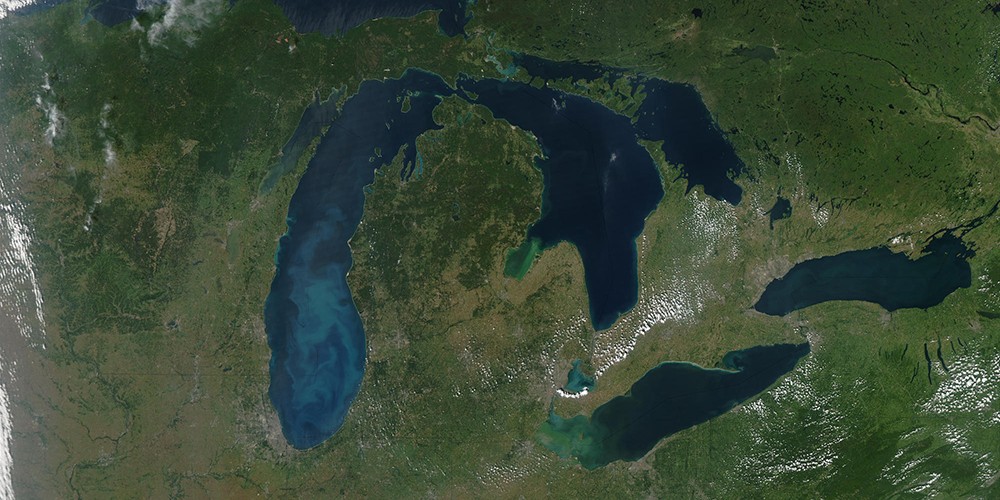Nadia Gaber and Jim Olson: What are you working on now?
We asked Michigan-based water activists Nadia Gaber and Jim Olson what they are working on and what they are thinking about now. Gaber is a medical anthropologist and member of We the People of Detroit Community Research Collective. Olson is an attorney and Founder and President of the organization FLOW (For Love of Water).
The School of the Arts: What are you working on now?
Nadia Gaber: The People's Water Board Coalition is working hard to make sure policymakers remember that people need access to safe and affordable water at home in order to wash their hands regularly and stem the spread of this coronavirus. We the People of Detroit has been fielding a lot of media inquiries into the nature of the racial disparities in COVID-19 infection and mortality rates, and again emphasizing the ties to longstanding inequalities in access to basic public goods. Most vitally, water. Personally, I have been balancing full-time studying as a senior medical student (including digesting the latest literature to keep my team in the hospital appraised) and designing a new research study with the Community Research Collective to study water insecurity amidst this pandemic with a focus on racial equity.
The School of the Arts: What are you thinking about now?
Nadia Gaber: Like many, this pandemic has given me a renewed recognition of my dependence on others, even as I stay isolated. I'm much more aware of the micropolitics of touch and breath and gesture and the subtle choreography of sharing space. It's made me think a lot about precaution at the verge of paranoia: whether to sanitize the milk carton before I refrigerate it at home, or change clothes every time I come back home, and how many times to wash my hands. It's also made me more grateful that I can cook, clean and wash my hands at home, knowing acutely that not everyone can safely “shelter in place.” The anthropologist in me wants to think more about disrupted rituals, unspoken taboos, and invisible threats.
I write and think about the relationship of public trust to public health, and how legacy racial and environmental injustice erode both. This has been a new window into that—one that's very immediate, even intimate. As an activist and ally, I am thinking about what kinds of support I can offer from afar, whether it be money, time, media outreach, friendship, grocery deliveries, research, or teaching—and doing a bit of all of that. I am balancing the impulse to do more and work harder while I am sidelined from clinical activities and being real about the crisis at hand. I haven't been immune from the chaotic reorganization of best laid plans in every domain of my own life, and am sorting out financial and logistical pieces with good support. I've spent a small but noticeable time thinking about whether to show the dog sleeping behind me on Zoom, and much more time thankful that I have his companionship. I'm constantly reminded that this is not only happening to me or my family, friends, communities and neighbors, but all around the world at once, and ongoing. It's remarkable. So quite broadly speaking, I suppose I've been thinking about what it means to live in the world as that world dissolves.
School of the Arts: What are you working on now?
Jim Olson: FLOW has spent hours on stepping up education and efforts to address and help the People’s Water Board and so many others in Detroit (not to ignore Benton Harbor and others around the State) to demand Governor Whitmer to restore water and suspend water shutoffs in Detroit. It took a petition, first denied, and later political effort to have Governor Whitmer finally issue an order to suspend shutoffs and implement restoration of water to those without even the ability to wash their hands.
FLOW and other organizations (Water for All Life WFAM, of which People’s Water Board is a central part) are lifting the generic elements of our Public Water Public Justice model law and taking other actions to prepare a work plan to fast-forward enactment of emergency rights and funding during the COVID-19 crisis. [At FLOW], we hope to address the right to water in addition to the duty of creating funding to address emergency health and water access needs. This funding could be placed in an emergency trust fund allocated for those in most need to remove affordability barriers in Detroit and elsewhere. The law would require bottled water companies, like Nestlé, Dasani, and Aquafina (who get water for free or a negligible fee) to obtain a license and pay a royalty for the privilege to sell sovereign, public water of the State. The royalties would go into a Water Justice Trust Fund, and the Trust Board would assure priorities are met and the right to water and health are protected. Citizens and communities would have the right to assure this is done. The public trust doctrine would follow the public trust water that is treated and serviced to residents and the infrastructure that delivers it to assure protection and rights of citizens. It’s estimated that at 25 cents a gallon, the royalties in the Trust Fund would be about $200-250 million a year, and provide the immediate, emergency revenue to structurally (or through plans) remove affordability barriers to stop shutoffs, fix pipes, and restore water for health and domestic safety.
We’ve continued to advance work on the rising water levels caused by climate change in the Great Lakes. Not unrelated, we’ve demanded Michigan to require the Enbridge the Canadian oil pipeline company that transports tar sands crude through the Great Lakes region to obtain the authorizations required by the public trust in the Great Lakes, and to demonstrate a necessity and substantial public interest for a oil pipeline tunnel under the Straits of Mackinac. Oil demand is dropping sharply, we’re shifting to a renewable energy economy, and the connection to climate, water, community is undeniable. We believe there are fundamental alternatives, a duty to reduce the effects of climate change, and an overarching public trust to water and health that defines public interest, not crude oil for a Canadian company. This overarching framework is heightened by COVID-19; maybe we’ll start connecting the dots in water, health, and public interest policy.
I also just finished a short report that demonstrates people in cities who are denied water and are prohibited from exercising rights to install water wells on their own property have a right to install those wells when they are disconnected from the public water supply systems when there is a health crisis or they can’t afford to pay the bill.
School of the Arts: What are you thinking about now?
Jim Olson: I’m thinking about those in New York, other cities, Detroit, here, and friends who have the disease or have been hospitalized. I’m thinking about the future, and can now sense that the world and the US are in the midst of a shift in values and meaning. We are learning, through experience, about the existentiality of life and the deeper faith or hope that we can live through this shift. I’m talking about a shift driven by COVID-19 and the awareness that we can live a different way, a way that sustains water, earth, and life— not destroys it. We must learn how to live as stewards to achieve sustainable lives for our children and grandchildren everywhere. If we connect the dots and see the relationship of water to food, health, and the insidious effects of climate change and systemic pollution, we can holistically start making good decisions about water, health, climate, energy, food, transportation, land use, and economy. I’m thinking we must endure, help wherever we can, and use this time to carry forward the change that has been needed but out of reach for a long time. We depend on health, environment, and the commons first; and on the economy second. No matter what it costs to make the shift, we must dig deep to make sure it happens. This is the only way to honor the lives lost and those who have suffered so much.
Update on the Detroit Water Shutoffs
By Current Writing Student Stephanie Philp
"More than 2.2 million Americans, through no fault of their own, lack access to the clean running water and basic indoor plumbing the rest of us take for granted," according to the recent opinion piece, "How Do You Fight the Coronavirus Without Running Water?," by George McGraw in the New York Times. When Michigan Governor Gretchen Whitmer announced the “Stay Home, Stay Safe” order in late March, many Detroit residents were living in homes with no running water. Over 127,000 residencies have had their water shut off since 2014 for non-payments. With the wide-spread of COVID-19—almost 9,000 cases as of April 28th in Detroit alone—and the push for everyone to stay home, the shutoffs made home an unsafe place to be.
Reverend Roslyn Bouier, in a recent Democracy Now! broadcast, underscored the harmful reality of “shelter in place” for those who cannot even wash their hands at home. “We should stop using that word ‘shelter’,” she said. “Shelter is defined as having a place of safety, comfort and protection. When you don’t have water on, that is not shelter.” Following the announcement of Mayor Mike Duggan’s Water Restart Plan in mid-March, which ordered water service reconnection for homes without service due to nonpayment, many homes have had their water service restored with the guarantee of a bill no higher than $25. The Detroit Water and Sewage Department (DWSD) reported in a letter to the state of Michigan that as of April 10th, water has been restored to almost all occupied homes, though activists remain concerned that many water-insecure households continue to go uncounted.
Organizations like We the People of Detroit have ramped up emergency water relief efforts amidst this crisis, and the People's Water Board Coalition is calling for the moratorium on shutoffs to be extended permanently.
On February 27, 2020, Nadia Gaber and Jim Olson discussed water activism with Catherine Fennell, Department of Anthropology. You can watch the full presentation below. Images by Michael DiVito.
Water Activism: Detroit, Flint, and the Great Lakes | Spring 2020
Image Carousel with 6 slides
A carousel is a rotating set of images. Use the previous and next buttons to change the displayed slide
-
Slide 1: Catherine Fennell (left), Nadia Gaber (middle), and Jim Olson (right). Images by Michael DiVito
-
Slide 2: Jim Olson. Images by Michael DiVito.
-
Slide 3: Nadia Gaber. Images by Michael DiVito
-
Slide 4: Catherine Fennell (left), Nadia Gaber (middle), and Jim Olson (right). Images by Michael DiVito
-
Slide 5: Catherine Fennell (left), Nadia Gaber (middle), and Jim Olson (right). Images by Michael DiVito
-
Slide 6: Nadia Gaber. Images by Michael DiVito
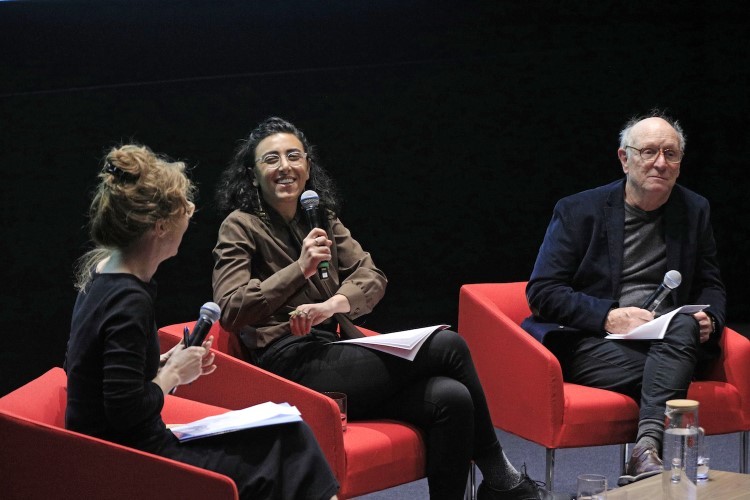
Catherine Fennell (left), Nadia Gaber (middle), and Jim Olson (right). Images by Michael DiVito
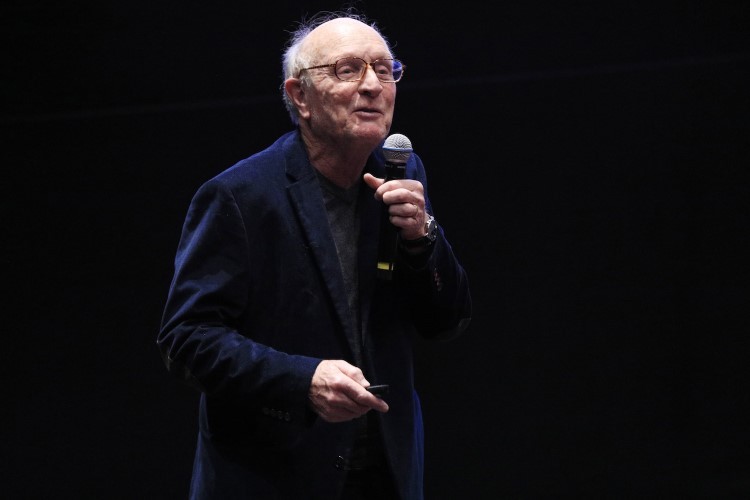
Jim Olson. Images by Michael DiVito.
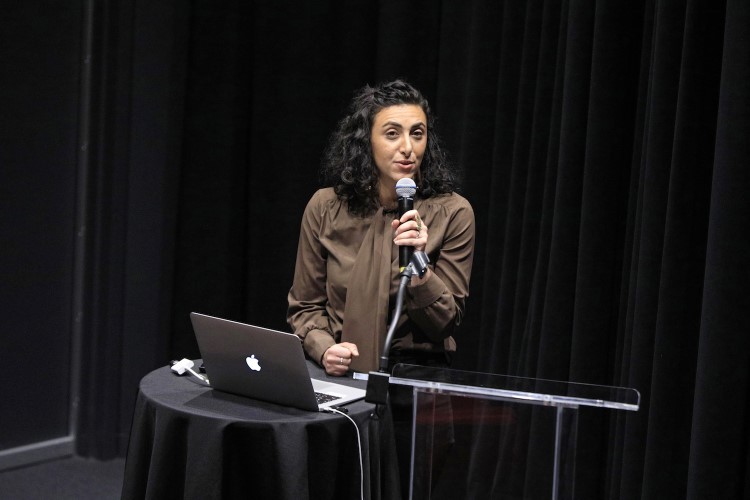
Nadia Gaber. Images by Michael DiVito
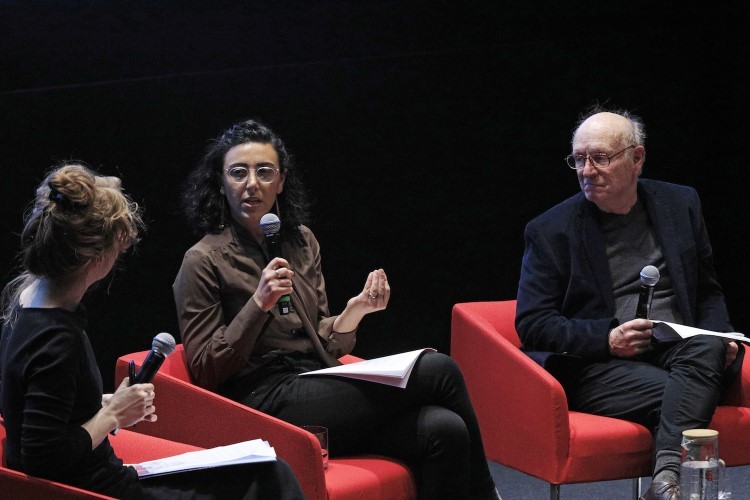
Catherine Fennell (left), Nadia Gaber (middle), and Jim Olson (right). Images by Michael DiVito
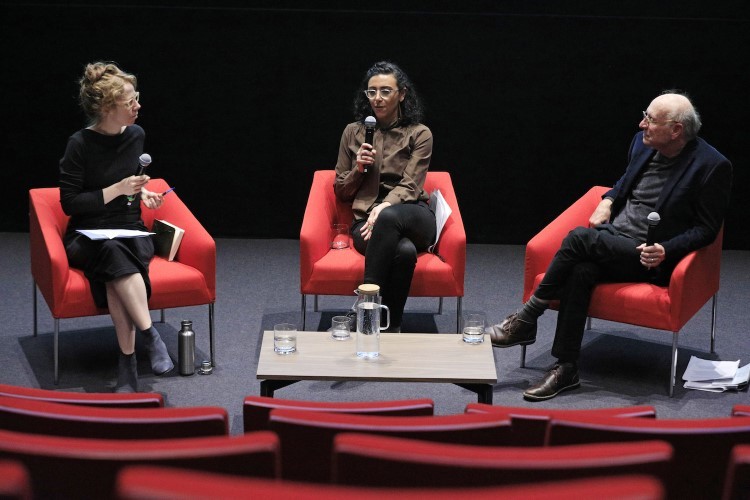
Catherine Fennell (left), Nadia Gaber (middle), and Jim Olson (right). Images by Michael DiVito
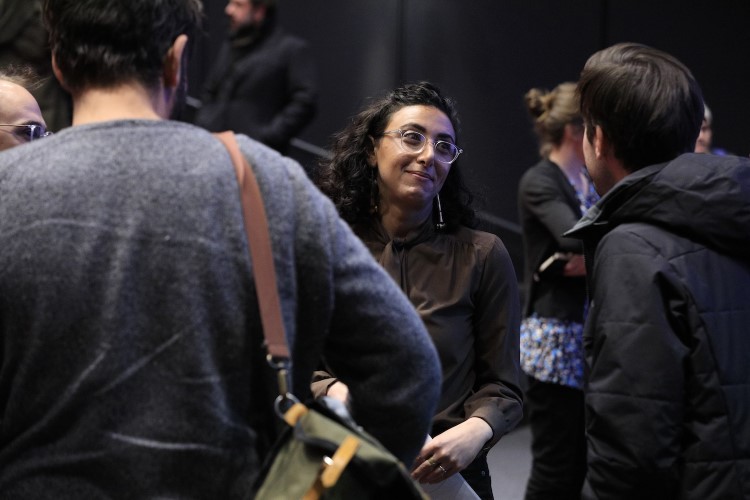
Nadia Gaber. Images by Michael DiVito
